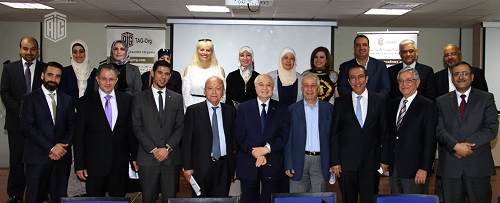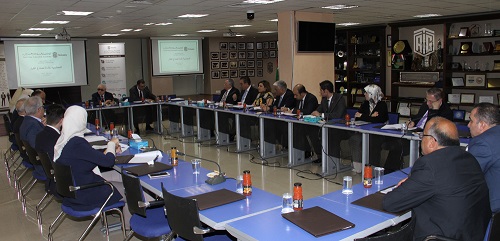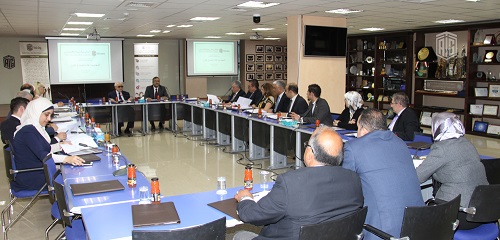Talal Abu-Ghazaleh Academy Organizes ‘Accounting as A Tool for Decision Makers’ Panel Discussion
08 Jun 2017 AMMAN – Talal Abu-Ghazaleh Academy organized a panel discussion on ‘Accounting as a Tool for Decision Makers’ chaired by HE Dr. Talal Abu-Ghazaleh in the presence of a host of decision makers from different sectors. The discussions aimed at outlining suggestions and recommendations to prepare a training program for decision makers that enables them to read the financial statements and use to them as a tool to take the proper decisions that correspond to the financial standing of the enterprise.
The discussions aimed at outlining suggestions and recommendations to prepare a training program for decision makers that enables them to read the financial statements and use to them as a tool to take the proper decisions that correspond to the financial standing of the enterprise. Dr. Abu-Ghazaleh underlined the significance of promoting the awareness of decision makers at small, medium and large enterprises regarding their ability to read the financial statements, noting that many inappropriate decisions were taken based on inaccurate reading of the financial statements.
 Dr. Abu-Ghazaleh added that due to the importance of this issue a training program should be planned in a way that takes into consideration the time pressure on decision makers, and at the same time be able to provide them with the comprehensive theoretical and practical knowledge on how to read financial statements and develop their businesses efficiently in all their aspects.
Dr. Abu-Ghazaleh added that due to the importance of this issue a training program should be planned in a way that takes into consideration the time pressure on decision makers, and at the same time be able to provide them with the comprehensive theoretical and practical knowledge on how to read financial statements and develop their businesses efficiently in all their aspects.Talal Abu-Ghazaleh Organization Executive Director Mr. Hazim Al Surakhi briefed the participants on accounting basics, branches, types, features and how all that helps make appropriate decisions, mainly in terms of determining available alternatives; accepting or rejecting new business transactions; decisions to decrease costs to maximize profits; pricing of services; and calculating the break-even point among others.
 He referred to the importance of the financial analysis in taking decisions as it demonstrates the strength or weakness of the enterprise’s financial standing, its profits, its credit standing, its efficiency of asset management, and the efficiency of its long-term financing policies.
He referred to the importance of the financial analysis in taking decisions as it demonstrates the strength or weakness of the enterprise’s financial standing, its profits, its credit standing, its efficiency of asset management, and the efficiency of its long-term financing policies.Participants, representing directors of government organizations, managers of local companies, heads of financial, banking and accounting divisions at a number of Jordanian universities in addition to representatives of professional associations, presented numerous suggestions, proposing in particular, to add the training program of decision makers to the university curricula of undergraduate studies of all disciplines, as everyone should know how to read financial statements.
They also called for dividing the program’s target groups into three categories to receive training based on their requirements. These categories would be: university students in general, university students in accounting and finance faculties, as well as decision makers in the society, noting that the training should be more of a practical than a theoretical nature





